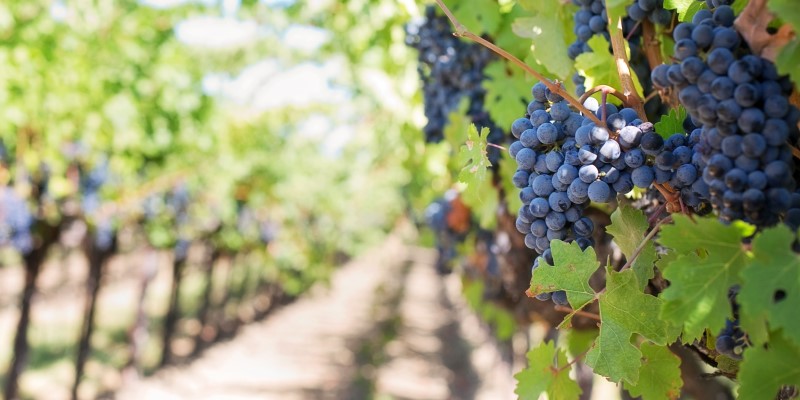Now, we know what you might be thinking. Organic wine? It’s just a trend, right? A fleeting craze that’ll soon fade away like so many before it. But we’ve got to tell you, this couldn’t be further from the truth. The rise of Australian organic wine is growing is not only reshaping the industry but also redefining our taste buds and how we think about what goes into our favourite bottle of Shiraz.
It’s more than just a movement; it’s a celebration of sustainability and quality that has been gaining momentum for years in Australian vineyards. This shift towards organic viticulture respects Mother Nature. It pays homage to the ancient art of winemaking – returning to its roots, if you will – while delivering exceptional flavours and quality that are winning global acclaim. We’re here to take you on an enlightening journey through Australia’s wine country, revealing how these eco-friendly practices impact your beloved tipple’s taste and quality and why they herald a brighter future for environmentally conscious wine production.
Key Takeaways
- Progressive wineries are prioritizing biodiversity preservation, water management, and carbon sequestration.
- The journey towards 100% organic certification is being embraced by Australian wineries.
- Aussie wines are being produced sustainably, highlighting the commitment to environmental practices.
- The rise of organic farming in general, indicates a promising future for sustainable wine production in the country.
Table of Contents
Embracing Sustainable Practices in Vineyards
As wine enthusiasts, we’re thrilled to delve into the growing trend of organic viticulture in Australia and its potential environmental benefits. Is organic wine really better for our planet? Let’s uncork this conversation by exploring sustainable vineyard practices, from soil health and biodiversity to carbon sequestration and water conservation.
Is Organic Wine Better for the Environment?
Imagine strolling through lush vineyards, knowing you’re sipping on a glass of Australian-certified organic wine that’s delicious and kinder to our planet. As lovers of good wine and stewards of the Earth, we can’t help but feel a sense of satisfaction knowing that each sip supports sustainable organic farming practices that are less harmful to the environment than conventional viticulture. Organic winemaking requires a commitment to nurturing the soil, reducing water usage, and refraining from using synthetic pesticides and fertilizers – all contributing significantly to preserving our ecosystem.

But how exactly is organic wine better for the environment? For starters, organic vineyards encourage biodiversity. They provide habitats for beneficial insects and birds that naturally keep pests at bay without using chemical sprays. The absence of artificial inputs also means healthier soils teeming with microorganisms essential for soil fertility. Moreover, many organic wineries are turning towards renewable energy sources like solar power for their operations, further reducing their carbon footprint. So when you uncork an organic wine made by an Aussie winemaker, remember it’s not just an indulgent pleasure; it’s also a toast to sustainability and environmental responsibility!
The Journey Towards Organic Viticulture
Coincidentally, it’s in the heart of Australia’s wine country that a significant shift towards organic viticulture has taken root, and it’s not just a passing trend. We’ve watched as wine producers across regions like South Australia’s McLaren Vale and Barossa Valley, as well as Western Australia’s Margaret River, have begun to embrace sustainable farming practices over the past few years with enthusiasm and dedication. This journey towards organic viticulture hasn’t been easy – it involves a complete rethinking of traditional farming methods, requiring far more patience and care than conventional farming. But organic farmers and winemakers are committed to this path because they understand that healthier soils produce better quality grapes for the winemaking process, making exceptional wines.
We’ve seen how these conscientious vintners eschew synthetic pesticides, herbicides and fertilisers, instead relying on natural processes and biodiversity to maintain the health of their vines. They’re setting up ecosystems where beneficial insects thrive alongside grape vines, significantly reducing the need for chemical interventions. Composting is also being widely adopted as a way to enhance soil fertility naturally. These techniques may demand more effort initially, but what they offer in return – vibrant wines with unique expressions of terroir – is worth every bit of hard work. So next time you raise your glass filled with an Australian organic wine, know that you’re sipping on passion, persistence and enduring love for our planet!

The Impact on Wine Quality and Taste
We’re thrilled to delve into the fascinating topic of how organic viticulture impacts wine quality and taste. Is it true that organic wine is preservative-free? This question often stirs vigorous debate among wine lovers and connoisseurs. Still, we’re here to shed light on the intricacies behind organic winemaking and its influence on the unique characteristics of the wines produced and their tantalizing flavours.
Organic wine is preservative-free?
No, organic wines can contain preservatives. While it’s a common misconception that organic wine is completely preservative-free, the truth is most still contain small amounts of sulphites to prevent spoilage and oxidation. Sulphites are naturally found in almost all wines as they occur during fermentation, but they can also be added later to extend shelf life. The key difference between conventional and organic wines lies in the quantity of these added sulphites. Organic wine standards allow for lower levels, meaning you consume lesser sulphites when you opt for an organic bottle.
Let’s look deeper into the exciting world of wine science: Sulphites act as antioxidants and preservatives in wine, helping maintain its freshness, flavour profile, and colour over time. Without them, our beloved Merlot or Chardonnay could turn into vinegar before we even get a chance to pop the cork! However, some people may be sensitive to higher sulphites, causing reactions like headaches or allergies. This is where organic wines step up with their lower sulphite content – giving us a sustainable, natural wine choice and one that considers our health too! So next time you savour your glass of home-grown organic wine, remember you’re enjoying its excellent taste and conscious effort towards preserving Mother Nature and your health.
The Global Recognition of Eco-Friendly Winemaking
You’re part of a global movement, a discerning drinker who not only savours the taste of fine wine but also cherishes the earth that nurtures it. It’s about more than just the pleasure of sipping on a glass of exquisite Pinot Noir or vibrant Chardonnay; it’s about celebrating and preserving the natural world that makes these indulgences possible. Across the globe, winemakers are embracing eco-friendly practices, recognizing that sustainability is not just trendy but essential for our planet’s future. From Old World vineyards in France and Spain to New World hotspots in California and Argentina, organic and biodynamic methods are gaining ground rapidly.
In Australia, we’re at the forefront of this sustainable revolution, with our winemakers receiving international recognition for having some of the best wineries in the world. Our sun-drenched soils teem with life, yielding robust grapes that speak volumes about our commitment to clean farming. We’ve received accolades from prestigious bodies like Decanter World Wine Awards and International Wine Challenge, solidifying Australia’s position as an influential player in green winemaking. And beyond awards, we’re winning over hearts and palates worldwide with our superior taste profile – proof positive that going green doesn’t mean compromising on taste or complexity. This acknowledgement propels us forward in our mission – nurturing Mother Earth while delivering exceptional wines to your table.
The Future of Environmentally Conscious Wine Production
Looking ahead, there’s a shimmering horizon of promise for eco-friendly winemaking, where vineyards thrive in harmony with nature, and each bottle tells an inspiring tale of earth stewardship. As we move forward into the future, we envisage vast stretches of lush green landscapes dotted with organic vineyards, where natural pest control methods replace harmful pesticides and sustainable farming techniques become the norm. We’re not just talking about a shift in agriculture here; it’s a profound transformation that reflects our growing understanding and respect for the environment. We foresee a time when every grape is grown without detriment to the ecosystem around it – when wine production isn’t just about creating palatable beverages but contributing positively to our planet.

The potential growth of organic wine production is exponential, especially in Australia, where its burgeoning biodynamic wine industry has continually demonstrated its commitment to environmentally conscious practices. In this optimistic future scenario, Australian vineyards will serve as global models for sustainable viticulture – setting high standards for biodiversity preservation, water management and carbon sequestration. This isn’t some distant pipe dream either; progressive wineries already embrace these practices on their journey towards 100% organic certification. So let’s raise our glasses high and toast to a promising future for local wine producers – sipping sustainably never tasted so good!
Conclusion
As we look to the future, we’re thrilled about what it holds for environmentally conscious wine production in Australia. It’s not just a trend but a shift towards sustainable practices transforming the industry dramatically. Some may think that if it’s not made conventionally, it’s not the same. Well, organic wine is wine. If it suits your taste and it’s made from organic matter, then you’re treating yourself to something close to what nature intended.
So here’s to sipping sustainably. Let’s toast to these Aussie vintners who are making waves on the global stage and savour every drop of their incredible organic wines. When you’re in the bottle shop next time, buy organic wine. If you’re a little sceptical, I urge you to try it. After all, isn’t it time we all drank a little greener?
benefits chemical chemicals cleaning clothing compost cons diet eco eco-friendly energy environment family farm farming fashion food garden gardening hair haircare health home immune system ingredients kids lifestyle material mindfulness money natural organic produce recipe recycling save shop shopping skin skincare soil stress relief superfoods sustainable sustainable living tips waste water wine yoga
About the Author

CHARLIE
Hi, my name is Charlie. I’m the founder of Just Organics. I have a background in Environmental Health and am passionate about animal welfare. I have been using organic products for more than ten years and would like to share my love of products made from nature.
I hope you find value in our articles. If there’s anything you’d like us to write about or if you’d just like to connect with us, feel free to send us a message.
